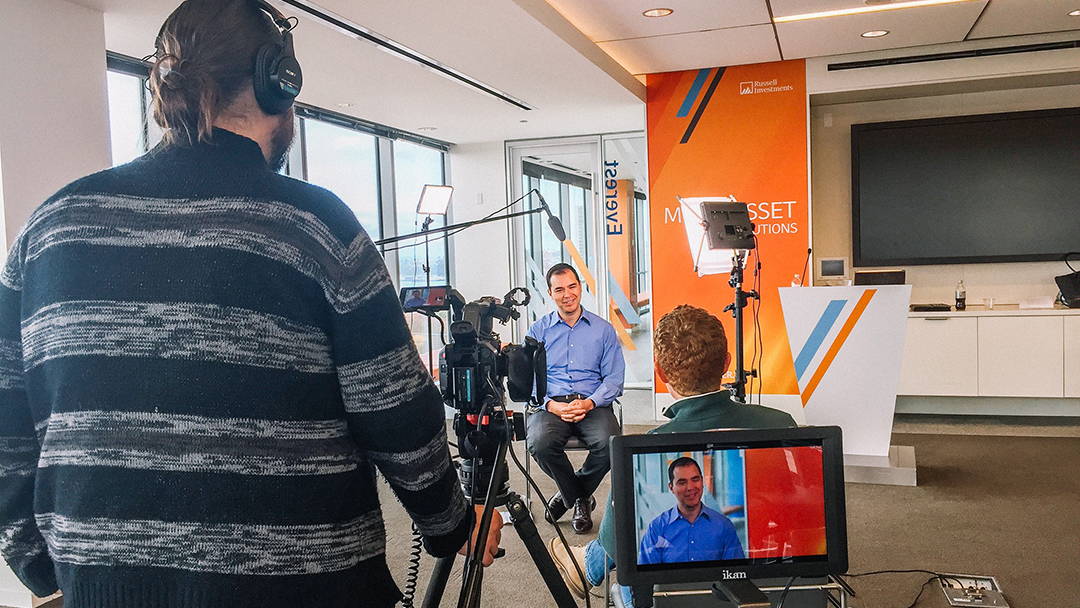Creating a Video Style Guide for Your Company, Brand or Business
Any content coming out of your marketing office is sure to have strict rules, regulations, and specifications around its presentation. Whether it’s...
3 min read
![]() Steph Crock
:
January 30, 2018
Steph Crock
:
January 30, 2018
Editor's Note: This blog post was updated for clarity and accuracy on September 18, 2023.
Producing a video as part of your company’s video marketing strategy or upcoming event requires careful planning, patience and confidence. With a limited budget and time, knowing how and when everything is going to happen is crucial for getting the job done right.
Though each video requires it’s own creative approach and filming techniques, it's important that your production team has a proven process to help you get the most out of your video budget.
Breaking it down by the three main stages of video production, here’s a look at how to keep the timeline moving smoothly from start to finish.
When it comes to producing a video, the most important element between you and your production team is communication. Communication starts on the front end when defining expectations and clarifying expectations. This communication flows throughout the production stage to ensure everything is running smoothly, and continues through the end of the project to ensure success.
When it comes to the purpose and vision of the project, start by polling your internal team and essential stakeholders. By doing this, you can collect the input of all parties who will have a say about the final project. Ask them to share their goals and objectives for the project. How do they see this video helping the organization? This can reduce the chances of a last minute change or having the "big boss" swoop in at the 11th hour with a list of changes. Identify hot buttons early so no one gets "burned" later.
Clarify your key messages, identify your target audience and consider all the places where this video will be seen. Concerns such as budget and length of the video are important considerations and often the end result of understanding all of the aforementioned items. When there is clarity for the project with financial, logistical and creative expectations confirmed put those elements in writing through a contract.
Why is a contract so important? A contract with everything on paper keeps everyone on the same page and is a constant reminder of the agreed upon expectations throughout production.
With a filming date confirmed, connect with your production team and create a checklist of all that needs to occur that day. If you’re filming at your office, make sure the team knows so they can clean their workspace and dress accordingly. Prep the on camera talent with interview questions and expectations several days before filming so they have time to prepare and feel comfortable in front of the camera. The last thing you want is to have to reschedule filming because someone isn’t prepared or ready. Having your on camera talent selected and prepped with key messages will ensure you have the optimum soundbites for your video.
With on camera talent squared away, be sure the areas where filming will take place are clean, orderly and represent your organization best. It's good practice to arrange a site check with your production team in advance so the best filming locations are identified. Key considerations are lighting and sound - is there ample light, or will more be needed? Is there background noise that could be distracting? Even something like an HVAC system humming in the background can make a difference. One additional suggestion is to let the team know where and when filming will take place so you can minimize disruption for your team and for the production crew.
Again, communication is essential. Are we covering everything discussed in pre-production? Are we sticking to the time schedule for the day? Openness and regular communication will leave everyone walking away with confidence at the end of the day.
The magic of video continues well after the filming, but it doesn’t happen in the blink of an eye. Among the most important elements is an agreed upon timeline. Set deadlines for script completion, feedback, first draft delivery, and final video delivery. This keeps both parties accountable and keeps production advancing. It also allows you to set meetings internally with your team to review the assets, especially if you have decision makers who aren’t always in the office. Getting those dates on their calendars can help ensure they’ll make their feedback a priority, and, ultimately, get you a final product faster.
Rarely, if ever, does a video production company nail it on the first edit. Keep in mind that every producer expects revisions - it comes with the territory. To help this process move smoothly and on budget, compile all feedback from your team into one document. Once everyone has chimed in with their thoughts and critique, share the feedback with the production team so they can begin to make the revisions. This helps keep the process orderly and will make it easier to bring your project in on budget! Also, give direct and candid feedback. Do not pull any punches because you will live with this video for a long time so you might as well get it right the first time!
A lot to take in? Hiring a production team is important to the overall success of your marketing video. Not only will they do the work of filming and editing, they can also help you think through your strategy and connect your goals with the finished project. Remember, anyone can point and shoot with a video camera. However, not all producers have the savvy to understand your goals and bring them to life in a compelling story.

Any content coming out of your marketing office is sure to have strict rules, regulations, and specifications around its presentation. Whether it’s...

Admit it… you’re helpless without your phone. So am I. I ask Siri for directions even when I know where I’m going. She’s not always 100% accurate,...

So, I recently wrote a blog about opening your video with your logo and I may or may not have ruffled some feathers. If you missed it, here it is....